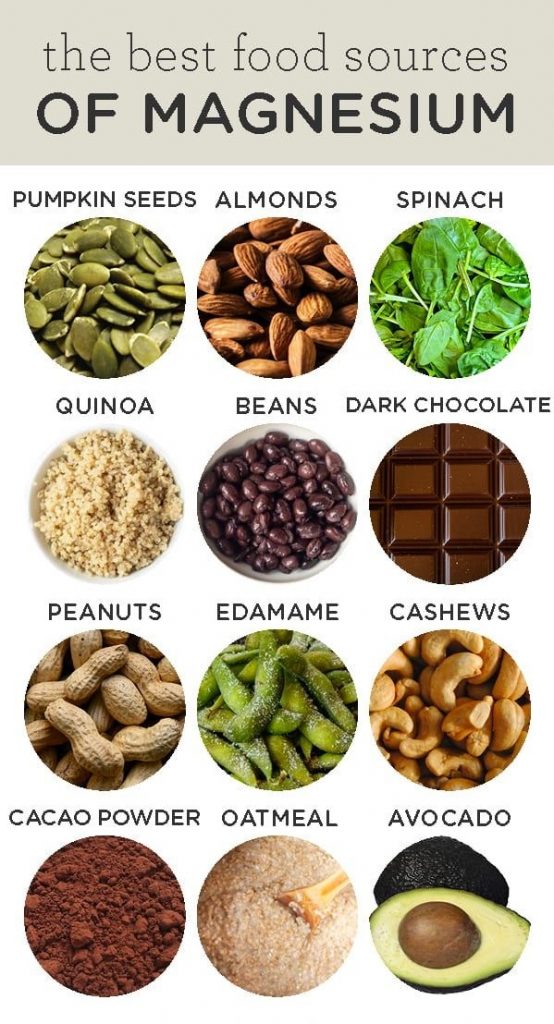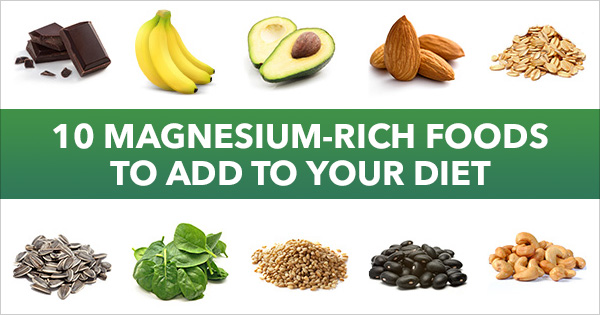Magnesium is one of those important minerals in our body, which help in maintaining the good health and normal functioning of different systems in our body. Being a co-factor in more than 300 body enzymes, it regulates various biochemical reactions in our body like blood pressure regulation, muscle function like a contraction, nerve impulse conduction, protein synthesis, and other processes like glycolysis, oxidative phosphorylation & energy production, and maintains heart rhythm. It helps in reducing the risks of diabetes to 35%, helps in preventing cancerous inflammations, improve bone health and prevent depressions & severe migraines.
Magnesium intake is included in the daily diet like vegan food, meat, dairy food, etc. According to United States Department of Agriculture, Reference daily intake (RDI) of 380 gm of magnesium intake is needed for an adult to maintain good health, but many people don’t reach the required RDI.
RDI for different age groups is as follows:
• milligrams: children of 1 – 3 years
• 130 milligrams: children of 4 – 8 years
• 240 milligrams: children of 9 – 13 years
• 410 milligrams: boys of 14 – 18 years
• 360 milligrams: girls of 14 – 18 years
• 400 milligrams: men of 19 – 30 years
• 310 milligrams: women of 19 – 30 years
• 420 milligrams: men of 31+ years
• 320 milligrams: women of 31+ years
Let’s discuss about some of its source that you must include in your diet.

Plant-based magnesium-rich diet includes
• Legumes, includes black beans, kidney beans, Mungo beans, Lima beans, white beans, chickpea peanuts, soybean, whole grains. You can apply for Ayurveda Pharmacist jobs to know about this field
• Fresh fruits like figs, raspberries, banana, avocado, apple, grapes, strawberry, and pineapples.
• like onion, brinjal, cabbage, cauliflower, green leafy vegetables like broccoli, spinach, lettuce, etc.
• Nuts include pumpkin seeds, sesame seeds, Cashews, Almonds, Peanuts, Pecans, Walnuts, and Brazil Nuts.
• Whole-grains rich in magnesium are Quinoa, Brown Rice and Bulgur.
Animal Based source of magnesium are:
• Seafood: Many types of fatty fish Salmon, Mackerel, halibut, and tuna.
• Dairy products: Cheese, Milk, and Yogurt.
Top important sources of Magnesium are:
• Avocados
Single Avocado fruit contains almost 58 mg of magnesium which amounts to 15% of the RDI. It is loaded with other nutrients along with magnesium. Hence it is mainly recommended for healthy brain and heart. It reduces inflammations, improves cholesterol and maintains heart health. It helps in defending the skin from the harmful effects of cortisol and adrenaline hormones. Include this in your diet chart and gift your heart-healthy life.
• Spinach
Being an abundant source of essential nutrients, and low in calories, spinach acts as an important source of magnesium as well. Include the spinach either in the raw or cooked form to avoid magnesium deficiency, risks of heart diseases and diabetes. Spinach is also known as an ideal item in diet list to maintain healthy skin, strong bones and muscles, and healthy hair.
• Almonds, cashews, and peanuts.
Another best recommended easy sources of magnesium for our body are nuts namely Almonds (80 milligrams per 28 grams of the nut), Cashews ( 82 milligrams per 28 grams of the nut) and peanuts (48 milligrams per 28 grams of nut). They are good natural medicines to improve blood glucose level, as well as a good source of fibers. Being anti-inflammatory, ideal recommended for heart health.
• Dark chocolate
It is one of the popular sources of magnesium since it is healthy plus delicious. It supplies almost 81 milligrams of magnesium per 28 grams of dark chocolate intake. It also contains high iron and other micronutrients, as well as prebiotic fiber upon which the healthy gut bacteria are fed upon.
• Seafood
Salmon, mackerel, tuna, halibut are the common seafood source of abundant magnesium. These are best-recommended seafood that aid in reducing the risks of chronic diseases. They are a rich source of proteins as well as omega-3 fatty acids, help in the overall wellbeing of the body.
• Pumpkin seeds, flax seeds, and chia seeds
These seeds being rich in magnesium are also a rich source of anti-oxidants helping cells against the harmful free radicals produced during metabolism. Best recommended against breast cancer. Flaxseeds also contain omega-3 fatty acids ideal for healthy hair. 28 grams of pumpkin seeds provide 150 milligrams of magnesium accounting to 37% of RDI.
Risks
Problems related to over intake of magnesium are unlikely because it is absorbed and excreted through urine. But there are chances of kidney problems, gastrointestinal problems, cardiac arrest, urine retention, depression and other risks due to a very high dose of magnesium through supplements.
Hence it is best recommended to include above mentioned natural sources of magnesium in your diet that is more than enough to have the balanced dose of the requirement for our body.



